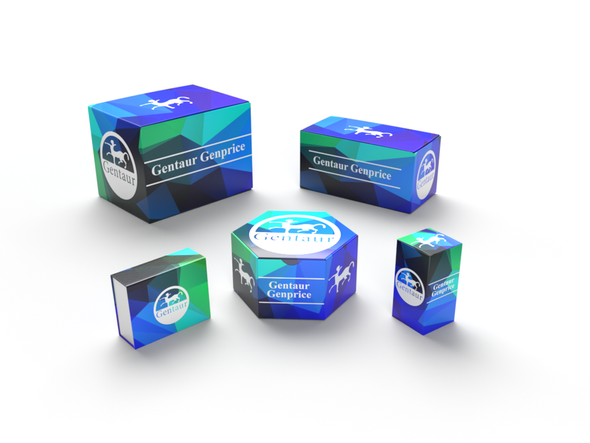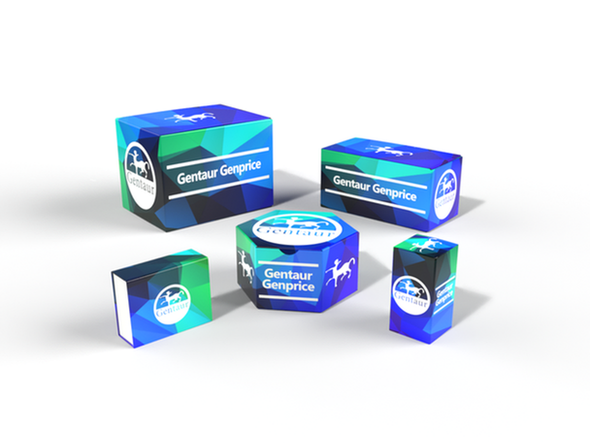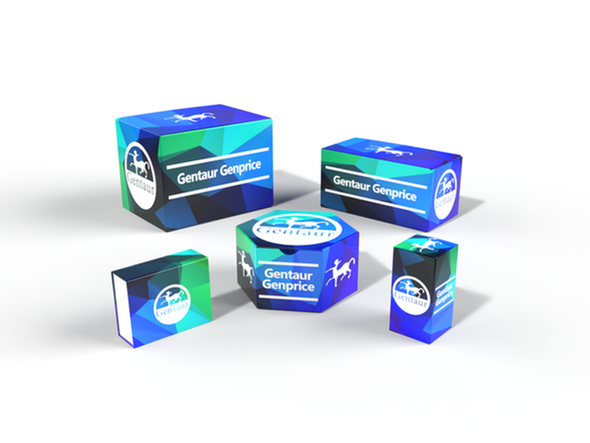Description
SUMO modification has been implicated in functions such as nuclear transport, chromosome segregation and transcriptional regulation. SUMO functions in a manner similar to ubiquitin in that it is bound to target proteins as part of a post-translational modification system. Still, unlike ubiquitin which targets proteins for degradation, SUMO is involved in a variety of Cellular processes, for example nuclear transport, transcriptional regulation, apoptosis, and protein stability. The active recombinant SUMO-3 is derived from the precursor pro-SUMO-3 (Accession # NM_006936). Human SUMO-3 shares 47% and 87% identity with SUMO-1 and SUMO-2 respectively. SUMOylation can occur without the requirement of a specific E3 ligase activity, where SUMO is transferred directly from UbcH9 to specific substrates. SUMOylated substrates are primarily localized to the nucleus (RanGAP-1, RANBP2, PML, p53, Sp100, HIPK2) but there are also cytosolic substrates (IB, GLUT1, GLUT4). SUMO modification has been implicated in functions such as nuclear transport, chromosome segregation, transcriptional regulation, apoptosis and protein stability.
4943 | SUMO3 human recombinant DataSheet
Biomolecule/Target: N/A
Synonyms: SUMO3; SMT3A; SMT3H1; SUMO-3
Alternates names: Macrophage Inflammatory Protein-1, CCL3, LD78
Taglines: A substrate for deSUMOylating enzymes.
NCBI Gene ID #: 6348
NCBI Gene Symbol: CCL3
Gene Source: Human
Accession #: P10147
Recombinant: Yes
Source: E. Coli
Purity by SDS-PAGEs: 98%
Assay: SDS-PAGE
Purity: N/A
Assay #2: HPLC
Endotoxin Level: < 0.1 ng/g of protein (<1EU/g).
Activity (Specifications/test method): Determined by its ability to chemoattract human monocytes using a concentration range of 1.0-10.0 ng/ml.
Biological activity: Determined by its ability to chemoattract human monocytes using a concentration range of 1.0-10.0 ng/ml.
Results: N/A
Binding Capacity: N/A
Unit Definition: N/A
Molecular Weight: 7.8 kDa
Concentration: N/A
Appearance: Liquid
Physical form description: Sterile filtered through a 0.2 micron filter. Lyophilized with no additives.
Reconstitution Instructions: Centrifuge the vial prior to opening. Reconstitute in water to a concentration of 0.1-1.0 mg/ml. Do not vortex. This solution can be stored at 2-8°C for up to 1 week. For extended storage, it is recommended to further dilute in a buffer containing a carrier protein (example 0.1% BSA) and store in working aliquots at -20°C to -80°C.
Amino acid sequence: ASLAADTPTA CCFSYTSRQI PQNFIADYFE TSSQCSKPGV IFLTKRSRQV CADPSEEWVQ KYVSDLELSA






